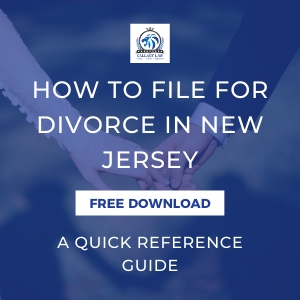Most people assume that if they are involved in a high conflict divorce, their only choice is litigation. I strongly disagree with that belief. In fact, people who are involved in high conflict cases should benefit the most from submitting their disputes to mediation.
What is the source of the high conflict? While many people may answer that question with child custody, parenting time, alimony, equitable distribution of assets, etc., the answer more times than not is actually emotion. While there are certainly some complex cases involving custody or asset valuation issues which may need to be litigated, the vast majority of high conflict divorce cases have such high conflict due to emotional issues, not financial issues or legal issues.
Litigation vs. Meditation in High Conflict Divorce
Litigation tends to intensify high conflict, not mitigate it. When people spend a lot of money on their attorneys and go to Court, their positions get farther and farther apart from each other, not closer. “Wins and losses” in Court tend to polarize the parties’ positions going forward. In many cases, the more the parties and their attorneys go to Court, the stronger their positions become and the mistrust between the parties exacerbates. Again, the polarization of positions and the increasing mistrust is likely rooted in emotion, not finances or law.
 Submitting high conflict cases to mediation affords the parties the opportunity to address the conflict in a more controlled and focused environment. It is important for the parties and the mediator to acknowledge and address the conflict and not try to simply avoid it. However, the conflict can be mitigated in mediation once the source of the conflict is expressed by each party and everyone involved in the mediation acknowledges each party’s source of conflict and the issues they are most emotional about.
Submitting high conflict cases to mediation affords the parties the opportunity to address the conflict in a more controlled and focused environment. It is important for the parties and the mediator to acknowledge and address the conflict and not try to simply avoid it. However, the conflict can be mitigated in mediation once the source of the conflict is expressed by each party and everyone involved in the mediation acknowledges each party’s source of conflict and the issues they are most emotional about.
It is important that both parties in mediation learn not only what they have to gain, but what they have to lose if their case is not resolved and proceeds to litigation. This includes not only financial gain or loss, but the emotional toll that litigation will take on the parties and their family as well as the legal fees incurred to bring a case to Trial. The parties need to know that the emotional toll that litigation will take on them and their family will likely never be repaired. The parties need to know that the mediation setting provides the best atmosphere for them to maintain some control over the result of their divorce and know that the mediation setting provides an opportunity for them to be heard, ask questions and propose solutions in a confidential setting.
An effective mediator in high conflict divorce cases will let the parties know that it is completely normal to experience high emotion and feelings of conflict in a divorce. However, the mediator must also educate the parties on the extent to which their anger and hostility toward each other will end up costing them and their family if they are unable to address the issues in a reasonable manner and wind up litigating their case. High conflict divorce cases may require multiple mediation sessions and separate meetings with each party and his/her attorney. While an effective mediator must acknowledge and address the emotion and hostility, the mediator must then be able to turn the parties’ attention from their hostility toward effective resolution of the issues involved.
In many cases, this is not an easy task. A balance of patience and persistence is critical. Parties in high conflict cases need to know that their feelings are being acknowledged and that their positions are being addressed in a reasonable manner.
>> If you are struggling with a high conflict divorce, Callagy Law can help. Contact our family law team today.
